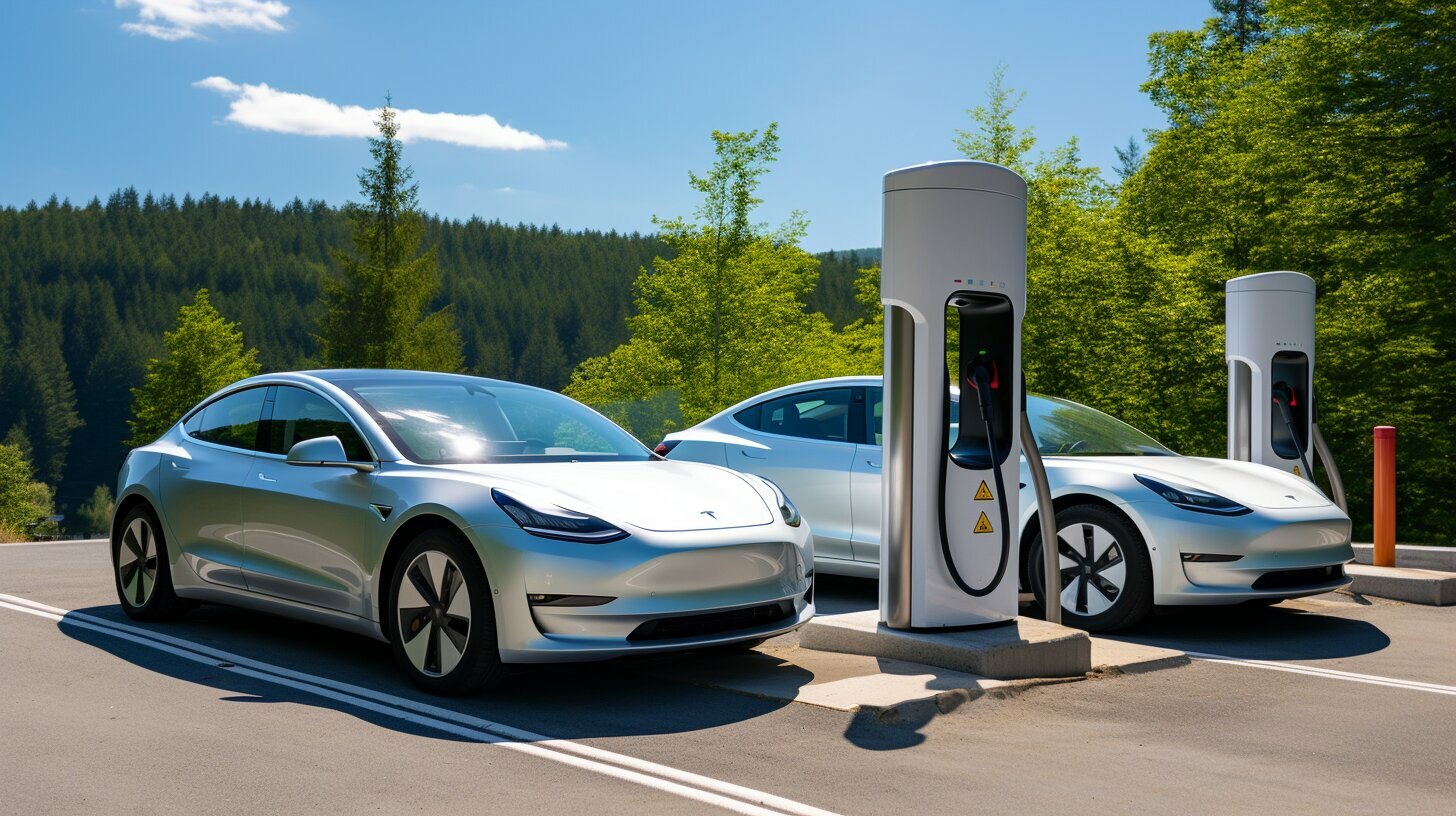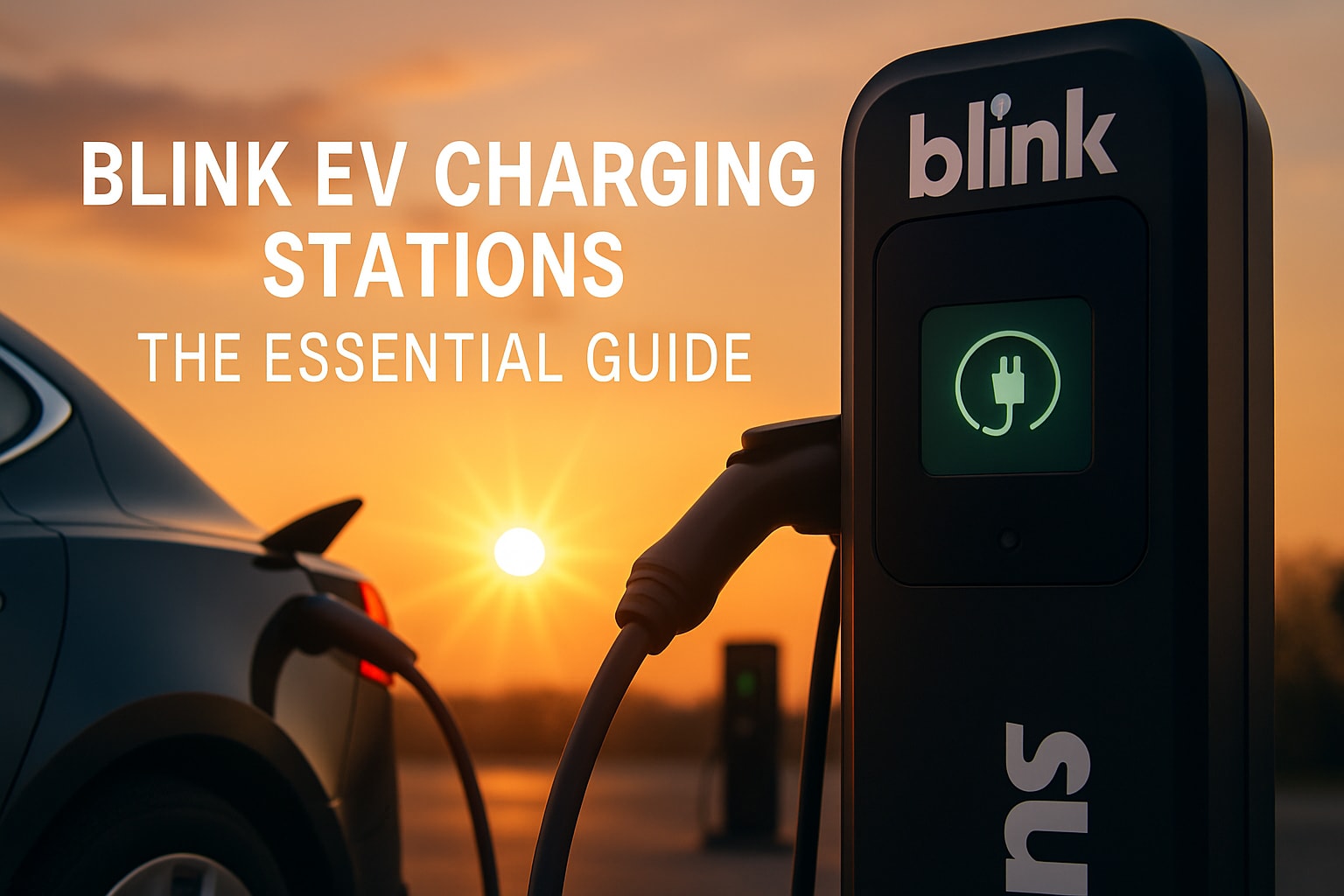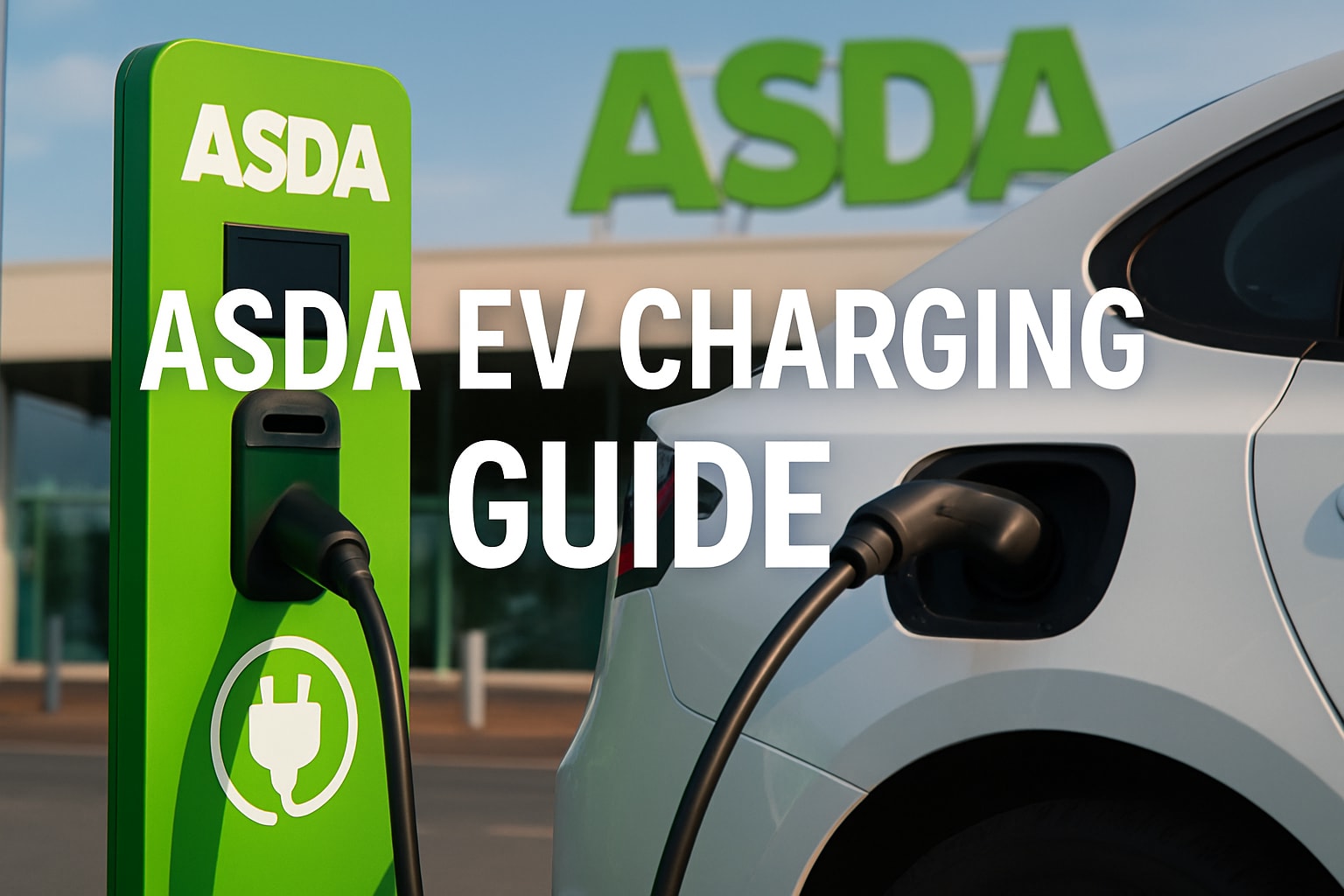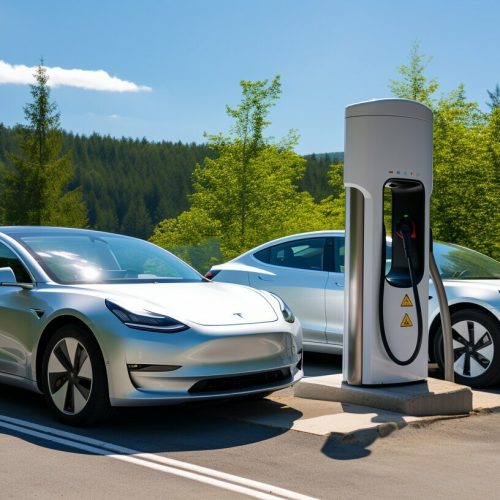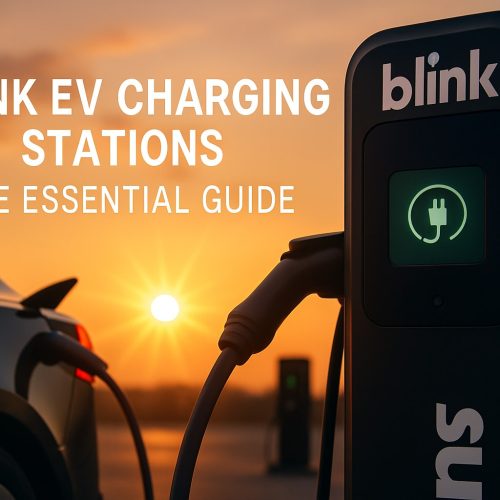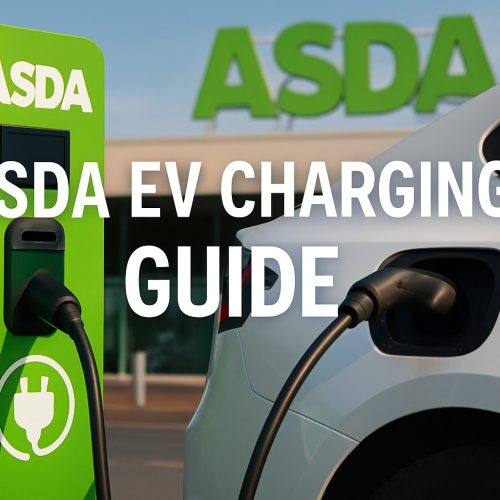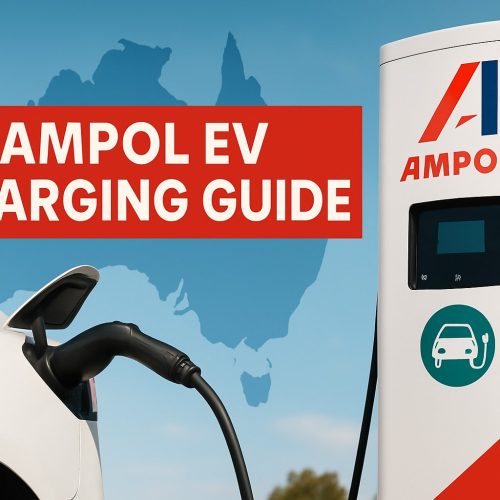The advancement of cutting-edge EV battery technology is transforming the electric vehicle industry, offering improved efficiency and performance. These technological advancements are revolutionizing the way we power electric vehicles, providing increased energy density, faster charging capabilities, and enhanced sustainability.
Key Takeaways:
- Cutting-edge EV battery technology is driving the growth of electric vehicles.
- Solid-state batteries, silicon anode batteries, and lithium-sulfur batteries are improving EV performance and range.
- Graphene and sodium-ion batteries offer higher energy density and faster charging times.
- These greener battery technologies have the potential to transform the transportation sector.
- Advancements in EV battery technology are creating a cleaner, more sustainable future.
Revolutionizing the EV Industry with Advanced Battery Technology
Advanced EV battery technology is revolutionizing the electric vehicle industry, pushing the boundaries of performance and efficiency. With innovations like solid-state batteries, silicon anode batteries, and lithium-sulfur batteries, electric vehicles are now capable of achieving higher speeds, longer ranges, and faster charging times.
One of the key advancements in battery technology is the introduction of solid-state batteries. These batteries utilize solid electrolytes instead of liquid ones, allowing for higher energy density and improved safety. With solid-state batteries, electric vehicles can achieve longer ranges while reducing the risk of fire or explosion.
Another significant development is the use of silicon anode batteries. Silicon anode batteries offer a higher energy density compared to traditional lithium-ion batteries, resulting in increased power and longer driving ranges. These batteries are also more durable and have a longer lifespan, making them ideal for electric vehicles that require long-lasting performance.
| Battery Type | Advantages |
|---|---|
| Lithium-Sulfur Batteries | Higher energy density Faster charging times Reduced environmental impact |
| Graphene Batteries | Increased energy density Shorter charging times Enhanced sustainability |
| Sodium-Ion Batteries | Redefining energy storage High-performance capabilities |
Lithium-sulfur batteries, graphene batteries, and sodium-ion batteries are also gaining traction in the electric vehicle market. Lithium-sulfur batteries offer a higher energy density, faster charging times, and a reduced environmental impact. Graphene batteries, on the other hand, provide increased energy density, shorter charging times, and enhanced sustainability. Meanwhile, sodium-ion batteries are redefining energy storage, offering high-performance capabilities for electric vehicles.
Driving the Future of Electric Vehicles
The revolution in EV battery technology is driving the future of electric vehicles. With advanced battery solutions, the electric vehicle industry can continue to evolve and overcome challenges such as limited range and longer charging times. These technological advancements are not just improving the performance of electric vehicles but also contributing to a greener and more sustainable transportation sector.
As the demand for electric vehicles continues to grow, manufacturers are investing heavily in research and development to create high-performance batteries that meet the needs of consumers. With cutting-edge EV battery technology, we are on the cusp of a major shift in the automotive industry, paving the way for a cleaner and more efficient future of transportation.
Sustainable EV Battery Solutions for a Greener Future
Embracing sustainable EV battery solutions is essential for creating a greener future of transportation. With the rapid growth of the electric vehicle (EV) industry, it has become increasingly important to develop battery technologies that not only deliver high-performance but also prioritize environmental sustainability. Cutting-edge advancements in EV batteries are paving the way for a cleaner and more sustainable mode of transportation.
One notable innovation in sustainable EV battery solutions is the development of solid-state batteries. These batteries offer several advantages over traditional lithium-ion batteries, including higher energy density and improved safety features. With solid-state batteries, EVs can achieve longer ranges, shorter charging times, and overall enhanced performance. Additionally, these batteries are free from the use of flammable liquid electrolytes, making them much safer and more environmentally friendly.
Another promising development in EV battery technology is the use of graphene. Graphene batteries possess exceptional electrical conductivity, allowing for faster charging and discharging rates. These batteries also offer significant improvements in energy density, making them ideal for electric vehicles. By incorporating graphene into EV battery designs, the industry can achieve greater efficiency and extend the range of electric vehicles, while reducing their environmental impact.
| Battery Type | Benefits |
|---|---|
| Solid-State Batteries | – Higher energy density – Improved safety features – Longer ranges and shorter charging times |
| Graphene Batteries | – Faster charging and discharging rates – Improved energy density |
“Cutting-edge advancements in EV batteries are paving the way for a cleaner and more sustainable mode of transportation.”
Furthermore, the development of sodium-ion batteries shows great promise in redefining energy storage for electric vehicles. Sodium-ion batteries offer similar performance characteristics to lithium-ion batteries but with the advantage of using abundant and low-cost sodium as the active material. This makes sodium-ion batteries more sustainable and economically viable, contributing to a greener future of transportation.
As the demand for greener transportation solutions continues to rise, it is crucial to invest in innovative EV battery technologies that prioritize sustainability. By embracing sustainable EV battery solutions, we can drive the electric vehicle revolution forward and create a cleaner and more sustainable future for generations to come.
Enhancing Efficiency with Innovative EV Battery Systems
The implementation of efficient EV battery systems is revolutionizing the efficiency and performance of electric vehicles. With cutting-edge technologies and advancements in battery design, these systems are delivering significant improvements in energy storage, charging speed, and overall sustainability.
One notable development is the rise of solid-state batteries, which offer enhanced energy density and longer-lasting power. These batteries utilize a solid electrolyte instead of a liquid one, resulting in improved safety, faster charging times, and increased range. The use of solid-state batteries in EVs is set to revolutionize the industry, allowing for longer drives and reduced reliance on frequent recharging.
Another breakthrough in EV battery technology is the adoption of silicon anode batteries. Silicon anodes offer higher energy density compared to traditional graphite anodes, leading to increased driving range and improved performance. This advancement paves the way for electric vehicles that can travel longer distances on a single charge, making them more practical and convenient for everyday use.
It is also important to mention the promising potential of lithium-sulfur batteries, which are known for their high energy density and reduced environmental impact. These batteries have the ability to store more energy, enabling electric vehicles to travel longer distances without the need for frequent recharging. Additionally, the use of graphene, a carbon-based nanomaterial, in battery technology has shown promise in improving energy storage and charging times.
| Battery Type | Advantages |
|---|---|
| Solid-State Batteries | – Enhanced safety – Faster charging times – Increased range |
| Silicon Anode Batteries | – Higher energy density – Improved performance – Longer driving range |
| Lithium-Sulfur Batteries | – High energy density – Reduced environmental impact – Extended driving range |
| Graphene Batteries | – Improved energy storage – Faster charging times |
These innovative EV battery systems are paving the way for next-generation electric vehicles that are more efficient, sustainable, and environmentally friendly. As technology continues to advance, we can expect further improvements in battery performance and durability, making electric vehicles a compelling choice for the future of transportation.
Unlocking Longevity with Reliable EV Battery Solutions
Reliable EV battery solutions, driven by state-of-the-art advancements, are unlocking exceptional longevity in electric vehicles. As technology continues to evolve, battery manufacturers are pushing the limits to develop batteries that not only offer high performance but also ensure long-lasting reliability.
One of the key factors contributing to the longevity of EV batteries is the development of more durable materials. State-of-the-art advancements in battery technology have led to the use of advanced cathode materials, such as lithium iron phosphate (LiFePO4) and nickel manganese cobalt (NMC) compositions, which are known for their improved stability and resistance to degradation.
Moreover, the integration of smart battery management systems (BMS) has revolutionized the way EV batteries operate. These systems constantly monitor and control various aspects of battery performance, including temperature, voltage, and current. By optimizing charging and discharging processes, BMS helps prevent overcharging, overheating, and other factors that can negatively impact battery life.
The Role of Manufacturing Processes
In addition to advanced materials and smart BMS, the manufacturing processes play a crucial role in determining the longevity of EV batteries. For instance, the use of precision cell assembly techniques, such as laser welding, ensures the reliability and consistency of cell connections, minimizing the risk of internal short circuits and improving overall battery performance.
To ensure long-lasting reliability, battery manufacturers also subject their products to rigorous testing and quality control measures. These include extensive charge-discharge cycles, thermal cycling, and vibration testing, among others. By simulating real-world operating conditions, manufacturers can identify potential weaknesses and improve the design and construction of their batteries.
Overall, the relentless pursuit of reliable EV battery solutions, backed by state-of-the-art advancements and stringent manufacturing processes, is driving the industry forward. As durability and longevity become increasingly important factors in the adoption of electric vehicles, these advancements are not only prolonging the lifespan of batteries but also instilling confidence in consumers, making the switch to greener transportation more viable than ever.
| Battery Technology | Key Advantages |
|---|---|
| Solid-State Batteries | – Higher energy density – Longer lifespan – Enhanced safety |
| Silicon Anode Batteries | – Improved energy storage capacity – Faster charging times – Longer cycle life |
| Lithium-Sulfur Batteries | – Higher energy density – Reduced weight – Lower cost potential |
| Graphene Batteries | – Faster charging times – Greater energy storage capacity – Improved environmental sustainability |
| Sodium-Ion Batteries | – Abundant and low-cost materials – High energy density – Longer lifespan |
The Rise of Solid-State and Silicon Anode Batteries
Solid-state and silicon anode batteries are revolutionizing the electric vehicle industry, delivering enhanced performance and extended range. These cutting-edge battery technologies offer significant advancements in terms of energy density and charging capabilities, making them game-changers for the EV market.
Solid-state batteries, for instance, utilize a solid electrolyte instead of a liquid one, providing higher energy density and improved safety compared to traditional lithium-ion batteries. This translates to longer driving ranges and faster charging times, addressing two critical concerns of EV owners. With solid-state batteries, EVs can achieve impressive mileage and reduce the time spent waiting for a recharge.
Similarly, silicon anode batteries are making waves in the industry. By replacing the traditional graphite anode with silicon, these batteries can store more energy, resulting in increased range and performance for electric vehicles. Silicon anode batteries offer great potential for achieving higher energy density and improving the overall efficiency of EVs.
The Advantages of Solid-State and Silicon Anode Batteries
Both solid-state and silicon anode batteries bring several advantages to the table. Firstly, the higher energy density of these batteries allows EVs to travel longer distances on a single charge. This not only enhances convenience for drivers but also helps reduce the range anxiety often associated with electric vehicles.
Secondly, the faster charging capabilities of solid-state and silicon anode batteries enable EV owners to recharge their vehicles in significantly shorter times. This is particularly beneficial for long-distance journeys or when time is limited. With these advanced batteries, the inconvenience of waiting for hours to charge an EV becomes a thing of the past.
Lastly, the improved sustainability of these battery technologies is a major driving force in their adoption. Solid-state and silicon anode batteries have the potential to reduce environmental impact and contribute to a greener future. With the shift towards sustainable energy sources, EVs powered by these cutting-edge batteries play a crucial role in achieving a cleaner transportation sector.
| Battery Technology | Advantages |
|---|---|
| Solid-State Batteries |
|
| Silicon Anode Batteries |
|
Exploring Lithium-Sulfur and Graphene Batteries
Lithium-sulfur and graphene batteries are emerging as game-changers in the electric vehicle industry, offering increased energy density and faster charging capabilities. These innovative technologies are revolutionizing the way we power electric vehicles, paving the way for a more sustainable future.
Lithium-sulfur batteries, known for their high energy density, have the potential to significantly increase the range of electric vehicles. By utilizing sulfur as the cathode material instead of traditional lithium cobalt oxide, these batteries can store more energy, allowing for longer drives without the need for frequent recharging. Additionally, lithium-sulfur batteries are lighter and more cost-effective, making them a promising solution for the next generation of electric vehicles.
Graphene batteries, on the other hand, offer faster charging times and improved durability. Graphene, a single layer of carbon atoms arranged in a honeycomb lattice, allows for efficient electron transfer and enhances the battery’s conductivity. This enables electric vehicles to recharge at a much faster rate, reducing the time spent waiting at charging stations. Furthermore, graphene batteries have a longer lifespan, making them a more reliable and sustainable choice for electric vehicle owners.
As the demand for electric vehicles continues to rise, the development of lithium-sulfur and graphene batteries is propelling the industry forward. These advanced technologies offer greater energy efficiency, shorter charging times, and a reduced environmental impact. With ongoing research and development, we can expect even more exciting advancements in battery technology, unlocking the full potential of electric vehicles and accelerating the transition to a greener future.
| Battery Type | Key Features |
|---|---|
| Lithium-Sulfur Batteries | Increased energy density Longer range Lightweight and cost-effective |
| Graphene Batteries | Faster charging times Improved durability Longer lifespan |
“Lithium-sulfur and graphene batteries are transforming the electric vehicle industry, offering greater energy efficiency and faster charging capabilities. These game-changing technologies are propelling the market towards a more sustainable future.” – EV Industry Expert
Sodium-Ion Batteries: Redefining Energy Storage
Sodium-ion batteries are redefining energy storage for electric vehicles, paving the way for high-performance battery solutions. With their unique characteristics and promising advancements, these batteries are revolutionizing the EV industry.
One notable advantage of sodium-ion batteries is their high energy density, allowing for longer driving ranges and improved performance. This means that EVs equipped with sodium-ion batteries can travel greater distances on a single charge, providing convenience and reducing the need for frequent charging.
Furthermore, sodium-ion batteries offer faster charging times compared to conventional lithium-ion batteries. This is a significant breakthrough, as it addresses one of the main concerns of EV owners – the time it takes to charge their vehicles. With sodium-ion batteries, charging an EV becomes quicker and more efficient, making electric vehicles a more practical and attractive option for consumers.
| Advantages of Sodium-Ion Batteries |
|---|
| High energy density |
| Faster charging times |
| Improved performance |
“Sodium-ion batteries have the potential to revolutionize the electric vehicle industry by providing higher energy density, faster charging times, and improved performance.”
– Electric Vehicle Research Institute
In addition to their performance advantages, sodium-ion batteries also offer environmental benefits. They are more sustainable and cost-effective than traditional lithium-ion batteries, as sodium is abundant and readily available. This makes sodium-ion batteries a greener choice for electric vehicle manufacturers and contributes to the overall sustainability of the transportation sector.
With the ongoing advancements in sodium-ion battery technology, the future of electric vehicles looks promising. As these high-performance batteries continue to evolve, they will play a vital role in shaping a cleaner and more sustainable future of transportation.
Key Advantages of Sodium-Ion Batteries:
- Higher energy density
- Faster charging times
- Improved performance
- Environmental sustainability
Transforming Transportation towards a Cleaner Future
Cutting-edge EV battery technology, along with sustainable solutions, has the power to transform the transportation sector into a cleaner and more sustainable future. The advancements made in EV battery technology are revolutionizing the electric vehicle industry, offering increased energy density, faster charging capabilities, and enhanced sustainability. These developments are driving the growth of EVs, improving their performance and range, and paving the way for a greener transportation landscape.
One of the key advancements in EV battery technology is the development of solid-state batteries. These batteries utilize solid electrolytes instead of traditional liquid electrolytes, resulting in higher energy density and increased safety. Solid-state batteries offer improved performance, longer battery life, and faster charging times, all of which contribute to a more efficient and sustainable transportation ecosystem.
In addition to solid-state batteries, silicon anode batteries have also emerged as game-changers in the EV industry. Silicon anodes have a higher energy storage capacity compared to traditional graphite anodes, enabling electric vehicles to achieve longer ranges. Furthermore, lithium-sulfur batteries are gaining attention for their potential to deliver higher energy density, lighter weight, and reduced environmental impact, further driving the adoption of sustainable EV battery solutions.
The Potential of Greener Battery Technologies
The future of EV battery technology also holds promising advancements in the form of graphene and sodium-ion batteries. Graphene, known for its exceptional electrical conductivity, is being explored as a material for battery electrodes. It has the potential to significantly improve energy density, enhance charging times, and reduce the carbon footprint of electric vehicles. Similarly, sodium-ion batteries are redefining energy storage for EVs, offering high-performance capabilities and improved scalability. With their sustainable and efficient characteristics, graphene and sodium-ion batteries are poised to play a significant role in shaping a cleaner and more sustainable future of transportation.
As we continue to embrace cutting-edge EV battery technology and sustainable solutions, we move closer towards a future where transportation is not only efficient and reliable but also environmentally friendly. These advancements in battery technology have the potential to reduce greenhouse gas emissions and dependence on fossil fuels, ultimately leading to cleaner air, reduced environmental impact, and a more sustainable future for all.
| Battery Technology | Advantages |
|---|---|
| Solid-State Batteries | – Higher energy density |
| – Increased safety | |
| Silicon Anode Batteries | – Higher energy storage capacity |
| Lithium-Sulfur Batteries | – Higher energy density |
| – Lighter weight | |
| Graphene Batteries | – Improved energy density |
| – Faster charging times | |
| Sodium-Ion Batteries | – High-performance capabilities |
The Promising Future of EV Battery Technology
The future of EV battery technology is promising, with next-generation advancements and top-rated battery solutions leading the way. As the demand for electric vehicles continues to rise, manufacturers are investing in cutting-edge battery technology to improve performance, range, and sustainability.
One of the notable advancements in EV battery technology is the development of solid-state batteries. These batteries offer higher energy density, longer lifespan, and increased safety compared to traditional lithium-ion batteries. With solid-state batteries, electric vehicles can achieve greater range and faster charging times, making them more practical and convenient for everyday use.
| Advancements | Benefits |
|---|---|
| Higher energy density | Increased range |
| Longer lifespan | Reduced need for battery replacements |
| Improved safety | Lower risk of thermal runaway |
In addition to solid-state batteries, silicon anode batteries are also making waves in the EV industry. These batteries utilize silicon as an alternative to graphite, allowing for higher energy storage capacity. With silicon anode batteries, electric vehicles can achieve longer range and more powerful performance, providing a better driving experience for users.
- Greater energy storage capacity
- Extended range
- Enhanced performance
Furthermore, the emergence of lithium-sulfur batteries and graphene batteries is set to further revolutionize EV technology. Lithium-sulfur batteries offer increased energy density, lighter weight, and reduced cost compared to conventional lithium-ion batteries. On the other hand, graphene batteries provide faster charging times, longer lifespan, and improved environmental sustainability.
Lithium-sulfur and graphene batteries are paving the way for greener and more efficient electric vehicles.
The Shift Towards Sustainable Transportation
The integration of these next-generation EV battery technologies is transforming the transportation sector towards a cleaner and more sustainable future. With the ability to offer longer range, faster charging, and reduced environmental impact, electric vehicles powered by advanced battery solutions are becoming a viable alternative to traditional gasoline-powered cars.
As consumers continue to prioritize sustainability and governments implement stricter emissions regulations, the demand for top-rated EV battery technology will only grow. With ongoing research and development, we can expect even more breakthroughs in battery technology that will further enhance the performance, efficiency, and sustainability of electric vehicles.
Embrace the promising future of EV battery technology and be part of the movement towards a greener and more sustainable transportation system. With cutting-edge advancements and top-rated battery solutions, we are driving the electric vehicle revolution forward to create a cleaner, healthier planet for future generations.
Driving the Electric Vehicle Revolution Forward
Advanced EV battery technology, paired with sustainable solutions, is driving the electric vehicle revolution forward, shaping the future of transportation. The automotive industry is witnessing significant advancements in battery technology, offering immense potential for the widespread adoption of electric vehicles. These cutting-edge batteries are not only improving the performance and range of EVs but also addressing environmental concerns and contributing to a greener, more sustainable future.
One of the key breakthroughs in EV battery technology is the development of solid-state batteries. These next-generation batteries offer higher energy density, faster charging times, and improved safety compared to traditional lithium-ion batteries. Through the use of solid electrolytes instead of liquid ones, these batteries eliminate the risk of leakage and thermal runaway, enhancing the overall safety of electric vehicles.
Additionally, silicon anode batteries are revolutionizing the EV industry by significantly increasing the energy storage capacity of batteries. By replacing the graphite anode with a silicon-based counterpart, these batteries can store more energy, resulting in longer driving ranges and reduced charging times. This advancement is a game-changer for electric vehicles, making them more efficient and practical for everyday use.
Moreover, lithium-sulfur batteries are emerging as a promising alternative to conventional lithium-ion batteries. These batteries offer higher energy density, meaning they can store more energy, allowing electric vehicles to travel longer distances on a single charge. Additionally, lithium-sulfur batteries are more environmentally friendly, as they use sulfur instead of cobalt, reducing the reliance on rare earth minerals.
| Battery Technology | Advantages |
|---|---|
| Solid-State Batteries | Higher energy density, faster charging times and improved safety |
| Silicon Anode Batteries | Increased energy storage capacity, longer driving ranges and reduced charging times |
| Lithium-Sulfur Batteries | Higher energy density, reduced reliance on rare earth minerals |
The Future of EV Battery Technology
The rise of these innovative battery technologies marks an exciting future for electric vehicles. Graphene batteries, known for their exceptional conductivity and high energy density, are being hailed as the next big thing in EV battery technology. With their potential to charge faster, provide longer driving ranges, and contribute to a cleaner environment, graphene batteries have the power to revolutionize the electric vehicle industry.
“Graphene batteries have the potential to charge faster, provide longer driving ranges, and contribute to a cleaner environment.”
Another promising technology is sodium-ion batteries, which offer an abundance of sodium as an alternative to scarce lithium resources. These batteries have the potential to provide high-performance and cost-effective solutions for energy storage, further driving the growth of electric vehicles and sustainable transportation.
In conclusion, advanced EV battery technology, coupled with sustainable solutions, is propelling the electric vehicle revolution forward. With continuous advancements and ongoing research, the future of transportation looks brighter than ever. As these cutting-edge batteries become more accessible and affordable, we can expect to see a significant increase in the adoption of electric vehicles, paving the way for a cleaner and more sustainable future.
Leveraging Cutting-Edge EV Battery Technology Today
Leveraging cutting-edge EV battery technology is crucial in embracing the benefits of efficient battery systems and staying ahead in the electric vehicle market. With advancements in battery technology revolutionizing the EV industry, it is essential for manufacturers and consumers to understand and harness the power of these innovations.
One of the key drivers in the EV battery market is the development of high-performance and sustainable solutions. Solid-state batteries, for example, offer higher energy density and faster charging capabilities, paving the way for EVs with longer ranges and shorter charging times. Silicon anode batteries also hold great promise, boasting improved energy storage capacity and enhanced durability. These advancements not only improve the efficiency of electric vehicles but also contribute to reducing their environmental impact.
In addition to solid-state and silicon anode batteries, lithium-sulfur batteries and graphene batteries are also making waves in the industry. Lithium-sulfur batteries offer a higher energy density compared to traditional lithium-ion batteries, while graphene batteries exhibit rapid charging capabilities and improved thermal conductivity. Both technologies have the potential to revolutionize EVs by extending their range and reducing charging times, ultimately enhancing the overall performance of electric vehicles.
| Battery Type | Advantages |
|---|---|
| Solid-State Batteries | Higher energy density, faster charging |
| Silicon Anode Batteries | Improved energy storage, enhanced durability |
| Lithium-Sulfur Batteries | Higher energy density, reduced weight |
| Graphene Batteries | Rapid charging, improved thermal conductivity |
Furthermore, sodium-ion batteries are gaining attention for their potential to redefine energy storage in electric vehicles. These batteries offer high performance, longer lifecycles, and improved safety, making them a promising alternative to traditional lithium-ion batteries. The versatility of sodium-ion batteries allows for a wide range of applications and further promotes the sustainable future of transportation.
Driving Towards a Sustainable Future
By leveraging cutting-edge EV battery technology and embracing the benefits of efficient battery systems, the transportation sector can move closer to achieving a cleaner and more sustainable future. These advancements in battery technology not only enhance the performance and range of electric vehicles but also reduce emissions and reliance on fossil fuels.
As the demand for electric vehicles continues to grow, it is important for manufacturers and consumers to stay informed about the latest innovations in EV battery technology. By investing in and adopting these cutting-edge solutions, the industry can pave the way for a greener and more efficient transportation landscape, benefiting both the environment and society as a whole.
Embrace a Sustainable Future with Cutting-Edge EV Batteries
Embracing cutting-edge EV battery technology and innovative solutions is key to embracing a sustainable future of transportation. As the demand for electric vehicles continues to rise, there is a growing need for battery technologies that offer enhanced energy efficiency and reduced environmental impact. With advancements in battery technology, such as solid-state batteries, silicon anode batteries, and lithium-sulfur batteries, the electric vehicle industry is experiencing a revolutionary shift.
One of the key advantages of cutting-edge EV battery technology is its ability to offer higher energy density, allowing electric vehicles to travel longer distances on a single charge. This not only improves the convenience and practicality of EVs but also reduces the need for frequent recharging, leading to a more efficient and sustainable transportation system. Additionally, these advanced battery solutions are designed to enable faster charging times, addressing one of the main concerns associated with electric vehicles.
Moreover, the emergence of graphene and sodium-ion batteries holds great promise for the future of EVs. Graphene batteries, known for their exceptional conductivity and strength, offer higher energy density and faster charging capabilities than traditional lithium-ion batteries. On the other hand, sodium-ion batteries provide a more sustainable alternative to lithium-ion batteries, as sodium is more abundant and environmentally friendly. These innovative battery technologies have the potential to further transform the electric vehicle industry, accelerating the transition towards a greener and cleaner transportation system.
The Promising Future of Cutting-Edge EV Batteries
With sustainable EV battery solutions and innovative technologies at the forefront, the future of transportation is brighter than ever. As researchers and manufacturers continue to push the boundaries of battery technology, we can expect further advancements in energy storage, charging capabilities, and overall performance of electric vehicles. The ongoing development of next-generation battery solutions will not only provide greater range and efficiency but also contribute to a significant reduction in greenhouse gas emissions and dependence on fossil fuels.
In conclusion, embracing cutting-edge EV battery technology and innovative solutions is crucial for a sustainable future of transportation. These advancements not only enhance the performance and range of electric vehicles but also contribute to a greener and cleaner environment. As the electric vehicle revolution gains momentum, the continuous development of sustainable battery solutions will play a vital role in shaping a more sustainable and energy-efficient transportation sector.
| Advantages of Cutting-Edge EV Battery Technology | Potential of Graphene Batteries | Potential of Sodium-Ion Batteries |
|---|---|---|
|
|
|
Conclusion
In conclusion, cutting-edge EV battery technology holds the power to revolutionize the electric vehicle industry, driving sustainability, efficiency, and performance to new heights. The advancements in battery technology, such as solid-state batteries, silicon anode batteries, and lithium-sulfur batteries, are transforming the landscape of electric vehicles by offering increased energy density, faster charging capabilities, and enhanced sustainability.
Graphene and sodium-ion batteries are also emerging as game-changers, with their higher energy density, faster charging times, and reduced environmental impact. These innovative battery technologies have the potential to reshape the transportation sector, paving the way towards a cleaner and more sustainable future.
With the continuous advancements in cutting-edge EV battery technology, the electric vehicle industry is poised for significant growth. These greener battery solutions not only contribute to reducing carbon emissions but also offer improved performance and range for electric vehicles.
As the demand for electric vehicles continues to rise, it becomes imperative to embrace these sustainable and high-performance battery solutions. By leveraging cutting-edge EV battery technology, we can drive the electric vehicle revolution forward and create a transportation sector that is cleaner, more efficient, and more sustainable.
FAQ
What is cutting-edge EV battery technology?
Cutting-edge EV battery technology refers to the latest advancements in battery technology specifically designed for electric vehicles. These batteries offer increased energy density, faster charging capabilities, and enhanced sustainability.
How are advanced battery technologies revolutionizing the EV industry?
Advanced battery technologies are revolutionizing the EV industry by improving the performance and range of electric vehicles. These technologies, such as solid-state batteries, silicon anode batteries, and lithium-sulfur batteries, are driving the growth of EVs and enhancing their overall capabilities.
What are graphene and sodium-ion batteries?
Graphene and sodium-ion batteries are emerging battery technologies that offer higher energy density, faster charging times, and reduced environmental impact. These batteries have the potential to transform the transportation sector and create a cleaner, more sustainable future.
How do sustainable EV battery solutions contribute to a greener future?
Sustainable EV battery solutions contribute to a greener future by reducing reliance on fossil fuels and minimizing carbon emissions. These innovative battery technologies offer efficient energy storage and can be powered by renewable energy sources, promoting environmental sustainability.
How do innovative EV battery systems enhance efficiency?
Innovative EV battery systems enhance efficiency by improving energy conversion and optimizing the overall performance of electric vehicles. These next-generation systems leverage advanced technologies to maximize power output and prolong battery life.
Why is reliable EV battery technology important?
Reliable EV battery technology is essential to ensure the longevity and performance of electric vehicles. Advancements in battery technology have resulted in state-of-the-art solutions that offer enhanced durability, stability, and safety.
What are solid-state and silicon anode batteries?
Solid-state and silicon anode batteries are advanced battery technologies that are revolutionizing the EV industry. Solid-state batteries utilize solid electrolytes instead of liquid, offering higher energy densities and improved safety. Silicon anode batteries utilize silicon rather than graphite anodes, providing higher energy storage capacity and faster charging.
How do lithium-sulfur and graphene batteries improve EV performance?
Lithium-sulfur and graphene batteries have the potential to improve EV performance by offering higher energy densities, faster charging times, and reducing environmental impact. Lithium-sulfur batteries have a higher theoretical energy density than traditional lithium-ion batteries, while graphene batteries can offer faster charging and longer cycle life.
What are sodium-ion batteries and their impact on EVs?
Sodium-ion batteries are an emerging technology that can redefine energy storage for EVs. These batteries offer high energy density, improved safety, and lower cost compared to traditional lithium-ion batteries. Sodium-ion batteries have the potential to contribute to the widespread adoption of electric vehicles by offering reliable and affordable energy storage solutions.
How can cutting-edge EV battery technology transform transportation towards a cleaner future?
Cutting-edge EV battery technology can transform transportation towards a cleaner future by reducing carbon emissions, minimizing reliance on fossil fuels, and promoting sustainability. These advanced battery solutions enable electric vehicles to travel longer distances, charge faster, and operate more efficiently, making them a viable and environmentally friendly alternative to traditional vehicles.
What does the future hold for EV battery technology?
The future of EV battery technology looks promising, with ongoing research and development efforts focusing on next-generation advancements. These advancements aim to further enhance energy density, improve charging efficiency, extend battery life, and reduce costs. Top-rated EV battery technology continues to push the boundaries of innovation, driving the electric vehicle revolution forward.
How can businesses and individuals leverage cutting-edge EV battery technology?
Businesses and individuals can leverage cutting-edge EV battery technology by adopting electric vehicles equipped with these advanced battery solutions. By embracing efficient EV battery systems, they can contribute to a cleaner and more sustainable future while enjoying the benefits of improved performance, extended range, and lower environmental impact.
How can cutting-edge EV batteries contribute to a sustainable future?
Cutting-edge EV batteries can contribute to a sustainable future by reducing reliance on fossil fuels, minimizing carbon emissions, and promoting the use of renewable energy sources. These innovative battery technologies offer efficient energy storage solutions and pave the way for a greener transportation sector.
Source Links
- https://www.mrlcg.com/resources/blog/what-are-the-latest-developments-in-electric-vehicle-battery-technology-/
- https://www.torquenews.com/8113/unleashing-electric-revolution-game-changing-battery-tech-poised-drive-evs-mainstream-within-decade
- https://energy5.com/the-future-is-electric-cutting-edge-battery-technology
